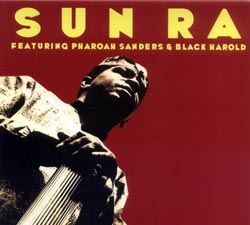
Sun Ra's 1964 ESP release with a young saxophonist Pharoah Sanders and Black Harold Murray on flute and log drum, remastered and with an additional 45 minutes.
Out of Stock
Quantity in Basket: None
Log In to use our Wish List
Shipping Weight: 4.00 units
Sample The Album:
Sun Ra-keyboards
Art Jenkins-space vocals
Pharoah Sanders-tenor
Black Harold-flute & percussion
Marshall Allen-alto saxophone
Danny Davis-alto saxophone
Pat Patrick-baritone
Chris Capers-trumpet
Al Evans-trumpet, flugelhorn
Teddy Nance-trombone
Bernard Pettaway-bass trombone
Robert Cummings-bass clarinet
Alan Silva-bass
Clifford Jarvis-drums
Click an artist name above to see in-stock items for that artist.
UPC: 825481040549
Label: ESP-Disk
Catalog ID: ESPDISK 4054CD
Squidco Product Code: 11483
Format: CD
Condition: New
Released: 2009
Country: USA
Packaging: Digipack
Recorded at Judson Hall, New York on December 31, 1964. Tracks 1-5 Stereo previously unreleased. Tracks 6-11 Mono issed as El Saturn JHNY-165.
"In 1964, Sun Ra asked the young tenor saxophonist Pharoah Sanders to join him, while Arkestra mainstay John Gilmore was busy working with Paul Bley, Andrew Hill, and Art Blakey. Before the recording's original release in 1976, Sun Ra stated: "It should be very interesting to the world to show what the pre-Coltrane Pharoah Sanders was like." Also appearing on "Featuring Pharoah Sanders & Black Harold" is the little-heard flautist, Black Harold (Harold Murray), who takes the lead on the track "The Voice of Pan," continuing into "Dawn over Israel." Bassist Alan Silva (ESP 1091) also does some fine bass work on the release.
Featuring Pharoah Sanders & Black Harold is notable not only for its unique lineup, but also for the first known recording of the composition "The Shadow World," here titled "The World Shadow," which was featured on later Arkestra albums. This release contains an additional 45 minutes and 36 seconds of unreleased material."-ESP

The Squid's Ear!
Artist Biographies
• Show Bio for Sun Ra "Sun Ra (born Herman Poole Blount, legal name Le Sony'r Ra; May 22, 1914 - May 30, 1993) was an American jazz composer, bandleader, piano and synthesizer player, poet and philosopher known for his experimental music, "cosmic philosophy", prolific output, and theatrical performances. He was inducted into the Alabama Jazz Hall of Fame in 1979. For much of his career, Ra led "The Arkestra", an ensemble with an ever-changing name and flexible line-up. Born and raised in Alabama, Blount would eventually become involved in the 1940s Chicago jazz scene. He soon abandoned his birth name, taking the name Sun Ra (after Ra, the Egyptian God of the Sun) and developing a complex persona and mythology that would make him a pioneer of Afrofuturism: he claimed he was an alien from Saturn on a mission to preach peace, and throughout his life he consistently denied any ties to his prior identity. His widely eclectic and exploratory music would eventually touch on virtually the entire history of jazz, ranging from swing music and bebop to free jazz and fusion, and his compositions ranged from keyboard solos to big bands of over 30 musicians. From the mid-1950s until his death, Ra led the musical collective The Arkestra (which featured artists such as Marshall Allen, John Gilmore, June Tyson throughout its various iterations). Its performances often included dancers and musicians dressed in elaborate, futuristic costumes inspired by ancient Egyptian attire and the space age. Though his mainstream success was limited, Sun Ra was a prolific recording artist and frequent live performer, and remained both influential and controversial throughout his life for his music and persona. He is now widely considered an innovator; among his distinctions are his pioneering work in free improvisation and modal jazz and his early use of electronic keyboards. Over the course of his career, he recorded dozens of singles and over one hundred full-length albums, comprising well over 1000 songs, and making him one of the most prolific recording artists of the 20th century. Following Sun Ra's death in 1993, the Arkestra continues to perform." ^ Hide Bio for Sun Ra • Show Bio for Pharoah Sanders "Pharoah Sanders (born October 13, 1940) is an American jazz saxophonist. Saxophonist Ornette Coleman once described him as "probably the best tenor player in the world." Emerging from John Coltrane's groups of the mid-1960s, Sanders is known for his overblowing, harmonic, and multiphonic techniques on the saxophone, as well as his use of "sheets of sound". Sanders is an important figure in the development of free jazz; Albert Ayler famously said: "Trane was the Father, Pharoah was the Son, I am the Holy Ghost". Pharoah Sanders was born Farrell Sanders on October 13, 1940 in Little Rock, Arkansas. His mother worked as a cook in a school cafeteria, and his father worked for the City of Little Rock. An only child, Sanders began his musical career accompanying church hymns on clarinet. His initial artistic accomplishments were in art, but when he was at Scipio Jones High School in North Little Rock, Sanders began playing the tenor saxophone. The band director, Jimmy Cannon, was also a saxophone player and introduced Sanders to jazz. When Cannon left, Sanders, although still a student, took over as the band director until a permanent director could be found. During the late 1950s, Sanders would often sneak into African-American clubs in downtown Little Rock to play with acts that were passing through. At the time, Little Rock was part of the touring route through Memphis, Tennessee, and Hot Springs for R&B and jazz musicians, including Junior Parker. Sanders found himself limited by the state’s segregation and the R&B and jazz standards that dominated the Little Rock music scene. After finishing high school in 1959, Sanders moved to Oakland, California, and lived with relatives. He briefly attended Oakland Junior College and studied art and music. Once outside the Jim Crow South, Sanders could play in both black and white clubs. His Arkansas connection stuck with him in the Bay Area with the nickname of “Little Rock.” It was also during this time that he met and befriended John Coltrane. Pharoah Sanders began his professional career playing tenor saxophone in Oakland, California. He moved to New York City in 1961 after playing with rhythm and blues bands. He received his nickname "Pharoah" from bandleader Sun Ra, with whom he was performing. After moving to New York, Sanders had been destitute: "He was often living on the streets, under stairs, where ever he could find to stay, his clothes in tatters." Sun Ra gave him a place to stay, bought him a new pair of green pants with yellow stripes (which Sanders hated but had to have), encouraged him to use the name 'Pharoah', and gradually worked him into the band." Sanders came to greater prominence playing with John Coltrane's band, starting in 1965, as Coltrane began adopting the avant-garde jazz of Albert Ayler, Sun Ra and Cecil Taylor. Sanders first performed with Coltrane on Ascension (recorded in June 1965), then on their dual-tenor recording Meditations (recorded in November 1965). After this Sanders joined Coltrane's final quintet, usually performing very lengthy, dissonant solos. Coltrane's later style was strongly influenced by Sanders. Although Sanders' voice developed differently from Coltrane, Sanders was strongly influenced by their collaboration. Spiritual elements such as the chanting in Om would later show up in many of Sanders' own works. Sanders would also go on to produce much free jazz, modified from Coltrane's solo-centric conception. In 1968 he participated in Michael Mantler and Carla Bley's Jazz Composer's Orchestra Association album The Jazz Composer's Orchestra, featuring Cecil Taylor, Don Cherry, Larry Coryell and Gato Barbieri. Pharoah's first album, Pharoah's First, wasn't what he expected. The musicians playing with him where much more straightforward than Sanders, which made the solos played by the other musicians a bit out of place. Starting in 1966 Sanders signed with Impulse! and recorded Tauhid that same year. His years with Impulse! caught the attention of jazz fans, critics, and musicians alike, including John Coltrane, Ornette Coleman, and Albert Ayler. In the 1970s, Sanders continued to produce his own recordings and also continued to work with the likes of Alice Coltrane on her Journey In Satchidananda album. Most of Sanders' best-selling work was made in the late 1960s and early 1970s for Impulse Records, including the 30-minute wave-on-wave of free jazz "The Creator has a Master Plan" from the album Karma. This composition featured vocalist Leon Thomas's unique, "umbo weti" yodeling, and Sanders' key musical partner, pianist Lonnie Liston Smith, who worked with Sanders from 1969-1971. Other members of his groups in this period include bassist Cecil McBee, on albums such as Jewels of Thought, Izipho Zam, Deaf Dumb Blind and Thembi. Although supported by African-American radio, Sanders' brand of free jazz became less popular. From the experiments with African rhythms on the 1971 album Black Unity (with bassist Stanley Clarke) onwards he began to diversify his sound. In the late 1970s and 1980s, Sanders explored different musical modes including R&B (Love Will Find a Way), modal jazz, and hard bop. Sanders left Impulse! in 1973 and redirected his compositions back to earlier jazz conventions. He continued to explore the music of different cultures and refine his compositions. However, he found himself floating from label to label. He found a permanent home with a small label called Theresa in 1987, which was sold to Evidence in 1991. However Sanders would continue to be frustrated with record labels for most of the 1990s. Also during this time, he went to Africa for a cultural exchange program for the U.S. State Department. Sanders’s major-label return would finally come in 1995 when Verve Records released Message from Home, followed by Save Our Children (1998). But again, Sanders’s disgust with the recording business prompted him to leave the label. In 1992, Sanders appears on a reissue (Ed Kelly and Pharoah Sanders) for the Evidence label of a recording that he completed for Theresa Records in 1979 entitled Ed Kelly and Friend. The 1992 version contains extra tracks which feature Pharoah's pupil Robert Stewart (saxophonist). This was Stewart's first recording for a jazz label. In 1994 he traveled to Morocco to record the Bill Laswell-produced album The Trance Of Seven Colors with Gnawa musician Mahmoud Guinia. The same year, Sanders appeared on the Red Hot Organization's album, Stolen Moments: Red Hot + Cool, on the track "This is Madness" with Umar Bin Hassan and Abiodun Oyewole and the bonus track, "The Creator Has A Master Plan (Trip hop Remix)." The album was named "Album of the Year" by Time. Sanders worked with Laswell, Jah Wobble, and others on the albums Message From Home (1996) and Save Our Children (1999). In 1999, he complained in an interview that despite his pedigree, he had trouble finding work. In 1997 he was featured on several Tisziji Munoz albums also including Rashied Ali. In the 2000s, a resurgence of interest in jazz kept Sanders playing festivals including the 2007 Melbourne Jazz Festival and the 2008 Big Chill Festival, concerts, and releasing albums. He has a strong following in Japan, and in 2003 recorded with the band Sleep Walker. In 2000, Sanders released Spirits and, in 2003, a live album titled The Creator Has a Master Plan. He was awarded an NEA Jazz Masters Fellowship for 2016 and was honored at a tribute concert in Washington DC on April 4, 2016." ^ Hide Bio for Pharoah Sanders • Show Bio for Marshall Allen "Marshall Belford Allen (born May 25, 1924) is an American free jazz and avant-garde jazz alto saxophone player. He also performs on flute, oboe, piccolo, and EVI (an electronic valve instrument made by Steiner, Crumar company). Allen is best known for his work with eccentric keyboardist/bandleader Sun Ra, having recorded and performed mostly in this context since the late 1950s, and having led Sun Ra's Arkestra since 1993. Critic Jason Ankeny describes Marshall as "one of the most distinctive and original saxophonists of the postwar era." Marshall Allen was born in Louisville, Kentucky. During the Second World War he enlisted in the 92nd Infantry Division and was stationed in France. Allen studied alto saxophone in Paris and played in Europe with Art Simmons and James Moody. He is best known for his mastery of pyrotechnic effects on the alto - he has said that he "wanted to play on a broader sound basis rather than on chords" (1971 interview with Tam Fiofori cited in). The opportunity came through his long association with Sun Ra, with whom he performed almost exclusively from 1958 to Ra's death in 1993, although he did record outside the Arkestra, notably with Paul Bley's group in 1964 and with Olatunji's group during the mid-1960s. Critic Scott Yanow has described Allen's playing as "Johnny Hodges from another dimension". Since the departure of Sun Ra and John Gilmore, Allen has led the Arkestra, and has recorded two albums as their bandleader. In May 2004, Allen celebrated his 80th birthday on stage with the Arkestra, as part of their performance at the Ninth Vision Festival in New York City. Allen gave another performance on his birthday in 2008 at Sullivan Hall in New York City. Allen often appears in NYC-area collaborations with bassist Henry Grimes and has also participated in the "Outerzone Orchestra" together with Francisco Mora Catlett, Carl Craig and others in an appreciation of Sun Ra's music." ^ Hide Bio for Marshall Allen • Show Bio for Danny Davis "Danny Davis was mainly an alto saxophone player and long-time member of the Sun Ra Arkestra, spanning a period from the early '60s to the late '80s. He is also heard on albums on the Japanese Fool label, and with Takehisa Kosugi & Peter Kowald on the FMP label." ^ Hide Bio for Danny Davis • Show Bio for Pat Patrick "To describe the phenomenal musical background of musician, composer, arranger "Pat" Patrick could fill several pages. His versatility combined with a distinctly individual sound has enhanced groups led by Erskine Hawkins, Sun Ra, Leon Thomas, Cab Calloway, Earl Hines, Horace Henderson, James Moody, Cootie Williams, Duke Ellington and Thelonius Monk to mention a few. His musical education includes study under Captain Walter Dyett at Du Sable High, Willy Randall of the original Earl Hines Band, Clark Terry and Wilson Jr. College in Chicago. Pat is the winner of the Downbeat TDWR (Talent Deserving of Wider Recognition) 1971 critics poll and fifth in the Downbeat "Established Talent" critics poll in 1972. Honours in the Popular Readers poll are also to his credit. Not only has he had several of his compositions recorded, but has composed music for a number of plays and television. He has recorded with Sun Ra, James Moody, Quincy Jones, Mongo Santamaria, Olatunji and John Coltrane among others. Pat Patrick is co-founder of the Baritone Saxophone Retinue. As composer, bandleader, and full-time member of the Sun Ra Arkestra, Pat Patrick was a visionary musician whose singular contribution to the jazz tradition has not yet been fully recognised. As well holding down the baritone spot in the Arkestra for 35 years, Patrick played flute and alto, composed in both jazz and popular idioms, and was a widely respected musician, playing with Duke Ellington, Eric Dolphy, Thelonious Monk and John Coltrane, with whom he appeared on Africa/Brass. But he is best known for his crucial contributions to key Sun Ra recordings including Angels and Demons at Play, Jazz in Silhouette and Nubians of Plutonia, among dozens of others. As a bandleader, Patrick only released one LP - the almost mythical Sound Advice, recorded with his Baritone Saxophone Retinue, a unique gathering of baritone saxophone masters including Charles Davis and Rene Mclean. First issued in 1977 on Sun Ra's legendary Saturn Records imprint, Sound Advice is a deephued exploration of this special instrument, a lost masterpiece of Arkestrally-minded Ellingtonia where higher adepts of the lower cosmic tones are heard in rare conference." ^ Hide Bio for Pat Patrick • Show Bio for Chris Capers "Chris Capers: Trumpet player who performed with the Sun Ra Arkestra during the mid-'60s, again in 1976 and also in 1990." ^ Hide Bio for Chris Capers • Show Bio for Teddy Nance Teddy Nance was a trombonist with The Sun Ra Arkestra from 1963 into the 1990s. ^ Hide Bio for Teddy Nance • Show Bio for Bernard Pettaway "Bernard Pettaway: Trombonist with the Sun Ra Arkestra during the '60s." ^ Hide Bio for Bernard Pettaway • Show Bio for Robert Cummings "Robert Cummings: Bass clarinet player with the Sun Ra Arkestra from 1963 until 1971. In groups: The Dave Brubeck Octet, The Sun Ra Arkestra." ^ Hide Bio for Robert Cummings • Show Bio for Alan Silva "Alan Silva (born Alan Lee da Silva; January 22, 1939 in Bermuda) is an American free jazz double bassist and keyboard player. Silva was born a British subject to an Azorean/Portuguese mother, Irene da Silva, and a black Bermudian father known only as "Ruby". He emigrated to the United States at the age of five with his mother, eventually acquiring U.S. citizenship by the age of 18 or 19. He adopted the stage name of Alan Silva in his twenties. Silva was quoted in a Bermudan newspaper in 1988 as saying that although he left the island at a young age, he always considered himself Bermudian. He was raised in the Harlem neighborhood of New York City, where he first began studying the trumpet, and moved on to study the upright bass. Silva is known as one of the most inventive bass players in jazz and has performed with many in the world of avant-garde jazz, including Cecil Taylor, Sun Ra, Albert Ayler, Sunny Murray, and Archie Shepp. Silva performed in 1964's October Revolution in Jazz as a pioneer in the free jazz movement, and for Ayler's Live in Greenwich Village album. He has lived mainly in Paris since the early 1970s, where he formed the Celestrial Communication Orchestra, a group dedicated to the performance of free jazz with various instrumental combinations. In the 1990s he picked up the electronic keyboard, declaring that his bass playing no longer surprised him. He has also used the electric violin and electric sarangi on his recordings. In the 1980s Silva opened a music school I.A.C.P. (Institute for Art, Culture and Perception) in Central Paris, introducing the concept of a Jazz Conservatory patterned after France's traditional conservatories devoted to European classical music epochs. Since around 2000 he has performed more frequently as a bassist and bandleader, notably at New York City's annual Vision Festivals." ^ Hide Bio for Alan Silva • Show Bio for Clifford Jarvis "Clifford Osbourne Jarvis (August 26, 1941 - November 26, 1999) was an American hard bop and free jazz drummer, who in the 1980s moved to London, England, where he spent the remainder of his career. Clifford Jarvis, the son of Malcom "Shorty" Jarvis was born in Boston, Massachusetts, United States, where he studied at Berklee College of Music in the 1950s. Moving to New York City, he established himself in jazz between 1959 and 1966, by recording with bebop and hard-bop musicians including Randy Weston, Yusef Lateef, Freddie Hubbard, Barry Harris, Jackie McLean, John Patton, Chet Baker, Kenny Drew, Walter Davis, and Elmo Hope, and playing with Grant Green and Rahsaan Roland Kirk. He worked and recorded with musicians associated with free jazz, including Sun Ra (from 1962 to 1976), Pharoah Sanders, Sonny Simmons, Alice Coltrane, and Archie Shepp. During the 1980s, Jarvis moved to England, where he played with younger musicians including Courtney Pine. He also worked as a music educator at Chats Palace Arts Centre in London and Pyramid Arts Development in Dalston. Jarvis continued teaching until his death in 1999." ^ Hide Bio for Clifford Jarvis
4/2/2025
Have a better biography or biography source? Please Contact Us so that we can update this biography.
4/2/2025
Have a better biography or biography source? Please Contact Us so that we can update this biography.
4/2/2025
Have a better biography or biography source? Please Contact Us so that we can update this biography.
Have a better biography or biography source? Please Contact Us so that we can update this biography.
4/2/2025
Have a better biography or biography source? Please Contact Us so that we can update this biography.
4/2/2025
Have a better biography or biography source? Please Contact Us so that we can update this biography.
4/2/2025
Have a better biography or biography source? Please Contact Us so that we can update this biography.
4/2/2025
Have a better biography or biography source? Please Contact Us so that we can update this biography.
4/2/2025
Have a better biography or biography source? Please Contact Us so that we can update this biography.
4/2/2025
Have a better biography or biography source? Please Contact Us so that we can update this biography.
4/2/2025
Have a better biography or biography source? Please Contact Us so that we can update this biography.
Track Listing:
1. Cosmic Interpretation 1:58
2. The Other World 19:53
3. The Second Stop Is Jupiter 2:19
4. The Now Tomorrow 9:56
5. Discipline 9 11:32
6. Gods On A Safari 2:56
7. The World Shadow 7:09
8. Rocket Number 9 3:57
9. The Voice Of Pan 5:17
10. Dawn Over Israel 3:53
11. Space Mates 2:49
Improvised Music
Jazz
Sun Ra
2009 Top Sellers
ESP
Instant Rewards
Search for other titles on the label:
ESP-Disk.

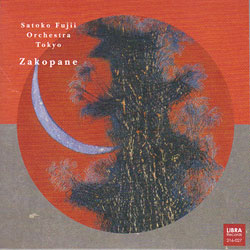
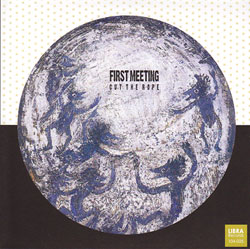
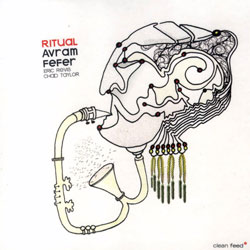
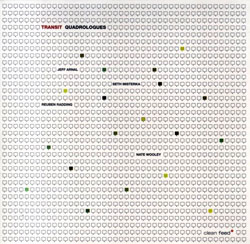
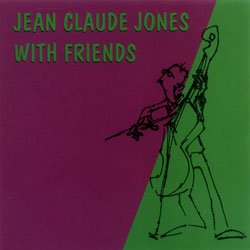
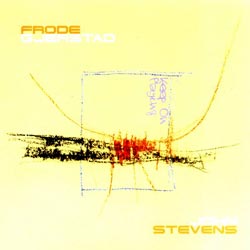
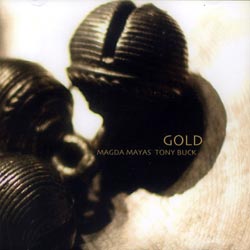
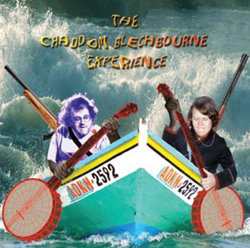
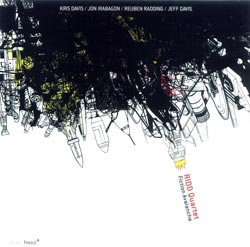
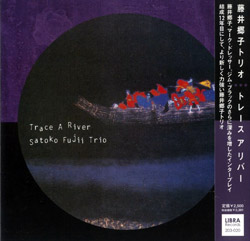


![Niblock, Phill / Anna Clementi / Thomas Stern: Zound Delta 2 [VINYL]](https://www.teuthida.com/productImages/misc4/34623.jpg)
![Yoko, Ono / The Great Learning Orchestra: Selected Recordings From Grapefruit [2 CDs]](https://www.teuthida.com/productImages/misc4/35841.jpg)

![Brotzmann, Peter / John Edwards / Steve Noble / Jason Adasiewicz: The Quartet [2 CDs]](https://www.teuthida.com/productImages/misc4/35975.jpg)
![Brotzmann, Peter / John Edwards / Steve Noble / Jason Adasiewicz: The Quartet [VINYL 2 LPs]](https://www.teuthida.com/productImages/misc4/35976.jpg)
![Thomas, Pat: The Solar Model of Ibn-Al Shatir [VINYL]](https://www.teuthida.com/productImages/misc4/36044.jpg)
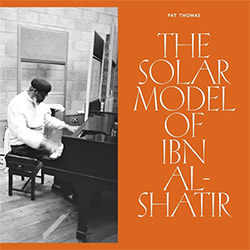



![Rodrigues, Ernesto / Nuno Torres / Guilherme Rodrigues: Whispers In The Moonlight - In Seven Movements [2CDs]](https://www.teuthida.com/productImages/misc4/35765.jpg)



![Cocks, Laura: FATHM [VINYL]](https://www.teuthida.com/productImages/misc4/36055.jpg)










![Ackerley / Prymek / Turner: All Hope With Sleeping Minds [CASSETTE]](https://www.teuthida.com/productImages/misc4/35950.jpg)
![Myers, David Lee : Tin Drop Tear [BOOK w/ DOWNLOAD]](https://www.teuthida.com/productImages/misc4/36030.jpg)




![Schindler, Udo / Sandy Ewen / Damon Smith: Munich Sound Studies Vols. 4, 5 & 6 [3 CDs]](https://www.teuthida.com/productImages/misc4/35966.jpg)
![Turbulence Orchestra & Sub-Units: Smear Out the Difficulties (Double Live) [2 CDs]](https://www.teuthida.com/productImages/misc4/36048.jpg)


![Perelman, Ivo / Tyshawn Sorey: Paralell Aesthetics [2 CDs]](https://www.teuthida.com/productImages/misc4/35871.jpg)


![Sjostrom, Harri: SoundScapes #4 Festival Berlin 2023 [3 CDs]](https://www.teuthida.com/productImages/misc4/35874.jpg)



![Glenn, Jordan: Flustered [CASSETTE]](https://www.teuthida.com/productImages/misc4/35948.jpg)










![Olencki, Weston : Pearls Ground Down To Powder [VINYL]](https://www.teuthida.com/productImages/misc4/35956.jpg)
![Myers, David Lee: Oculus [2CDs]](https://www.teuthida.com/productImages/misc4/35857.jpg)


![dustsceawung: dustsceawung [CASSETTE w/ Download]](https://www.teuthida.com/productImages/misc4/35753.jpg)




![Halls of the Machine: Atmospheres For Lovers And Sleepers [CASSETTE w/ DOWNLOAD]](https://www.teuthida.com/productImages/misc4/35806.jpg)



![AHC (Alexander Cooper): Lase [2 CDs]](https://www.teuthida.com/productImages/misc4/35754.jpg)



![Fagaschinski, Kai / Yan Jun : Graveyard Processions [VINYL w/ DOWNLOAD]](https://www.teuthida.com/productImages/misc4/35474.jpg)









![Zorn, John / JACK Quartet: The Complete String Quartets [2 CDs]](https://www.teuthida.com/productImages/misc4/35609.jpg)

![Lonsdale, Eden: Dawnings [2 CDs]](https://www.teuthida.com/productImages/misc4/35480.jpg)







![Sanna, Claudio: Compositori Sardi Contemporanei II [2 CDs]](https://www.teuthida.com/productImages/misc4/35317.jpg)







![Zurria, Manuel: Fame di Vento [3 CDs]](https://www.teuthida.com/productImages/misc4/35167.jpg)


![Electric Bird Noise / Derek Roddy: 8-10-22 [CD EP]](https://www.teuthida.com/productImages/misc4/35970.jpg)








![Elephant9 : Mythical River [VINYL]](https://www.teuthida.com/productImages/misc4/34624.jpg)



![Elephant9 with Terje Rypdal: Catching Fire [VINYL 2 LPs]](https://www.teuthida.com/productImages/misc4/35355.jpg)
![Deerlady (Obomsawin, Mali / Magdalena Abrego): Greatest Hits [VINYL]](https://www.teuthida.com/productImages/misc4/34876.jpg)







![Surplus 1980: Illusion of Consistency [CD]](https://www.teuthida.com/productImages/misc4/35069.jpg)
![Staiano, Moe: Away Towards the Light [VINYL + DOWNLOAD]](https://www.teuthida.com/productImages/misc4/35037.jpg)



![Caveira (Gomes / Sousa / Abras / Ferrandini): Ficar Vivo [VINYL]](https://www.teuthida.com/productImages/misc4/34643.jpg)
![Coley, Byron: Dating Tips for Touring Bands [VINYL]](https://www.teuthida.com/productImages/misc4/17906.jpg)

![Lost Kisses: My Life is Sad & Funny [DVD]](https://www.teuthida.com/productImages/misc4/lostKissesDVD.jpg)